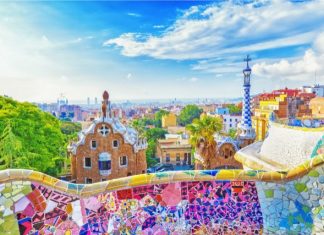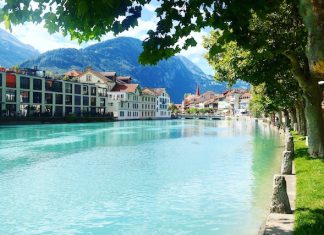Spain is a traditionally Catholic country and offers various celebrations and activities during the Holy Week of Easter holidays. Seville in southern Spain is considered one of the best places to visit if you want to experience a traditional Easter celebration. In Seville, Holy Week is the biggest party in town.
Processions of Brotherhoods: Religious Tradition in Seville:
The religious community is grouped into brotherhoods by neighborhood. The brotherhoods are groups of faithful people who, during Holy Week in Seville, stroll through the streets in procession. For example, tens of Nazarene brothers walk, accompanying their sacred images to the city’s Cathedral. By doing this, they mimic the pain of Christ in his passion and his death, which is a public penance during processions.
Each brotherhood has a name, which varies according to which group created them the Virgin, the Christ, or anything else defining the church in which they reside. Their outfit – badges, coats, and shoes-is different for each brotherhood. The pointed hood, which stands on their heads with a cone shape, gives Seville brotherhoods a very characteristic appearance. The hood takes on different colors according to the brotherhood the owner belongs to.
The processions go from Palm Sunday to Easter Sunday. The schedule and itinerary are defined in advance. All brotherhoods do the procession of penance in the “Carrera Oficial” circuit. This circuit goes from Plaza de la Campana through Sierpes street to Plaza de San Francisco and Constitution Avenue to the Cathedral.
Music and entertainment: pagan celebrations:
Beyond its origin and center in religion, Easter in Seville is also a spring festival. Along with the April Fair, this is the biggest tourist attraction in Seville at this time of year.
Believers and atheists, everyone will find in their Easter holiday in Seville a joy for the senses. The respectful silence is interspersed with the bustle of the crowds and the music of the bands that accompany the processions. Each brotherhood has bearers carrying the images of the group and Nazarenes. Large crowds of tourists and the local population always accompany them. In many cases, people from Seville carry crosses or Syrians, alluding to the brotherhood they follow. Each brotherhood also carries its standard banner, made of velvet in the color that identifies the group, with the brotherhood’s coat of arms embroidered on its large size and attached to a silver bar topped with a cross.
The smells are also protagonists, mixing the sweet scent of the “waters of blossoms” (typical Sevillian fragrance and an excellent souvenir to give friends at home) with incense. The color of Seville in spring contrasts with the black “mantilla” clothes women from Seville wear on Holy Thursday, mourning the death of Christ.
Helpful travel tips:
• If you are visiting Seville for Easter Holidays, book your accommodation as early as possible. There are a lot of cheap hotels and cheap hostels. You will save money and find a good place faster, as many are booked months in advance! Most lodging options are in the center of Seville, very close to everything.
• If traveling by car, leave it parked at the hotel. The city will be full of visitors and hard to navigate by car.
• Avoid the busy area around the Cathedral if you are traveling with children or seniors.
• When a brotherhood passes in front of you, crowds will gather in what is called “bulla.” Therefore, it is advised that you remain where you are. Do not try to escape “against” the accumulation, as it will soon disperse when the brotherhood continues its procession.
• Inform yourself of the times and locations of the processions upon arrival. You will find this information in any newspaper or tourist information office.
• On Palm Sunday, people usually dress very well and wear a nice new piece of clothing for the first time.
• Wear comfortable shoes; you will be walking and standing for hours.
• Be sure to try the typical Easter dishes: cod with chickpeas or tomatoes and “torrijas,” especially those with cinnamon, for dessert.
For religious and non-religious visitors, Easter Holidays in Seville are always unforgettable. Happy Easter!








